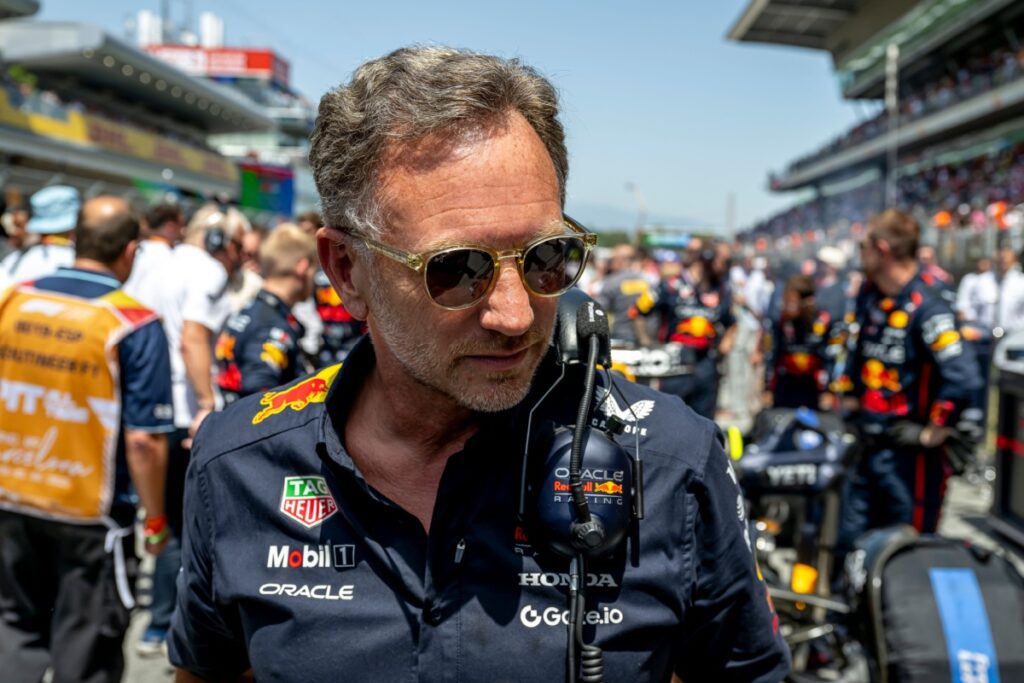The debate over Christian Horner’s return to Formula 1 leadership has escalated into a public clash among team principals. Horner, who stepped down as Red Bull Racing team principal in July 2024, is seeking to reenter the sport’s leadership ranks. In response, Aston Martin’s team principal Mike Krack defended his criticism of Horner’s attempts, accusing him of lobbying for influence within rival teams.
Intense Dispute Over Horner’s Reintegration
Krack argued that Horner was attempting to “interfere” with the operations of other teams without accountability. He warned team owners about allowing a figure he described as “disputed” to exert sway behind the scenes. Horner has denied any wrongdoing and has positioned his efforts as advocating for broader strategic interests across the sport. The rift is among the most public intra-team disputes in recent years and comes as the championship prepares for one of its most competitive seasons in over a decade.
Reactions and Interventions From Alpine
In the midst of the dispute, representatives from Alpine F1 have weighed in, urging a more measured approach. Alpine’s management cautioned against public attacks and called for matters to be handled internally. They emphasized that F1 governance mechanisms exist to resolve conflicts without escalating tension among team principals.
Alpine executives also expressed concern that the public dispute could damage the sport’s reputation and distract from the upcoming competitive season. They encouraged Horner, Krack, and other stakeholders to pursue dialogue under the oversight of Formula 1 management or the Fédération Internationale de l’Automobile (FIA) rather than engaging in public accusations. According to insiders, Alpine fears that ongoing personal disputes could overshadow technical progress and sponsorship negotiations vital for the 2025 campaign.
Limits of Influence: Governance and Oversight
A crucial element underpinning the disagreement is the question of authority: how much influence a former team principal can wield in the internal affairs of active teams. In his defense, Horner has framed his outreach as a means of promoting the interests of all teams and fostering cohesion in areas such as cost control and technical regulation.
However, Krack has opposed any back-channel involvement, maintaining that transparency and formal processes must prevail. He has urged team owners to treat Horner’s efforts cautiously and to avoid granting him unofficial leverage. The tension underscores the challenges F1 faces in balancing legacy, influence, and governance.
While this dispute is rooted in personalities and power dynamics, it also raises larger questions about the system of checks and balances in F1’s governance framework. As teams prepare for the new season, the outcome of this debate may affect how influence is wielded and monitored across the paddock. The FIA is expected to address these issues during upcoming meetings, and sources suggest that revisions to the code of conduct for senior officials and advisors could soon be introduced.
Implications For Formula 1’s Competitive Landscape
The timing of the Horner debate could not be more sensitive, as the 2025 season is already being framed as a pivotal year for Formula 1. The introduction of further cost-cap adjustments, intensified competition among top constructors, and heightened commercial pressures have placed governance under the spotlight.
Sponsors and partners are closely monitoring the situation, as prolonged disputes risk destabilizing negotiations and damaging the sport’s image. Meanwhile, drivers and technical staff have privately voiced concerns that leadership conflicts could take focus away from car development and on-track performance. The controversy highlights the thin line between personal influence and structural governance in a sport where reputation and power play critical roles.


